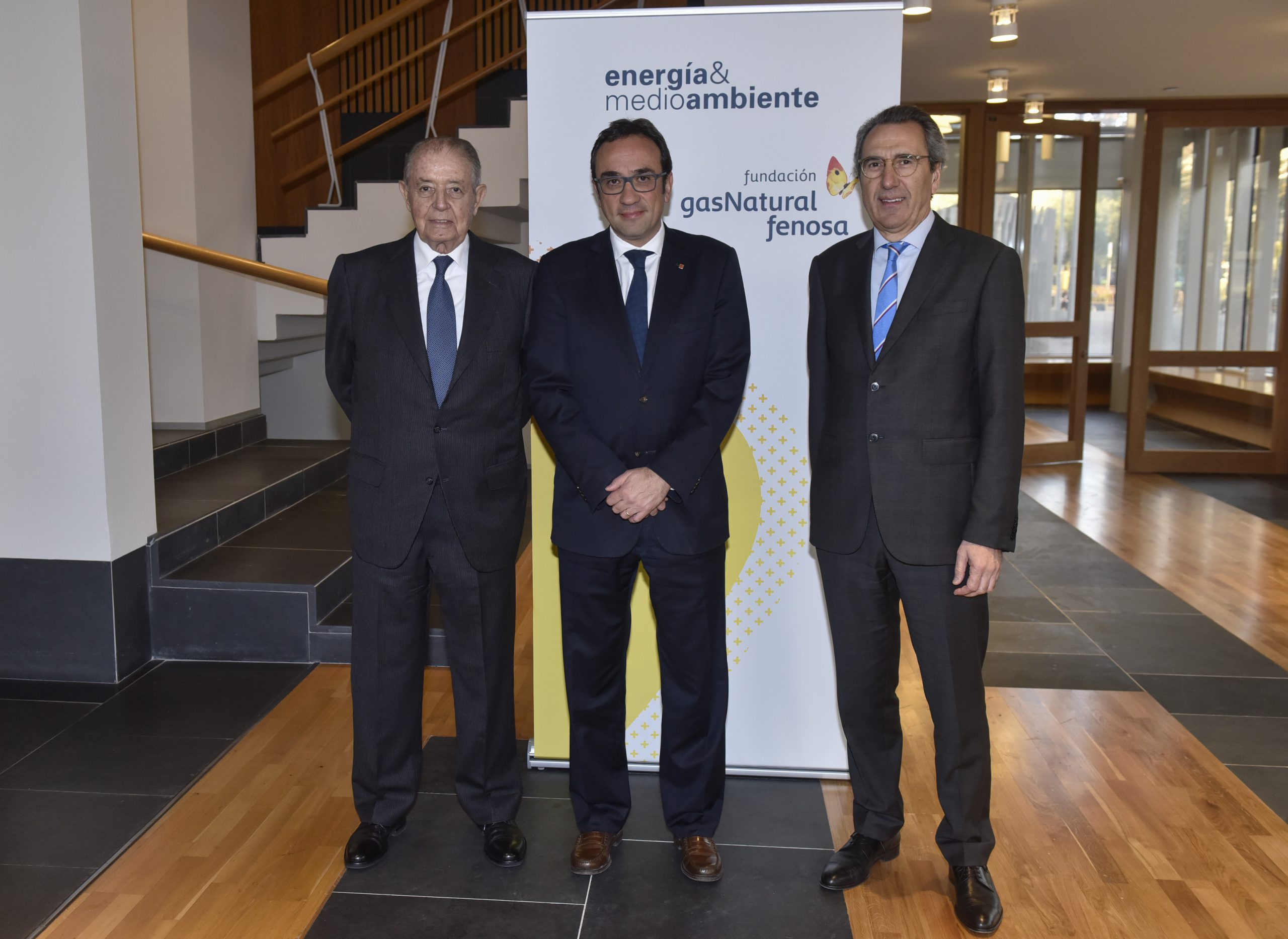Cities will account for 75% of world energy consumption and 80% of greenhouse gas emissions in 2030
A group of experts brought together in Barcelona today by the Gas Natural Fenosa Foundation discussed the strengths and weaknesses of cities in the field of energy, resources and theLeer más

A group of experts brought together in Barcelona today by the Gas Natural Fenosa Foundation discussed the strengths and weaknesses of cities in the field of energy, resources and the environment.
Earlier today, the General Manager of the Gas Natural Fenosa Foundation, Martí Solà, and the Catalan Minister for Territory and Sustainability, Josep Rull, opened a seminar in Barcelona entitled ‘A New Concept for the Clean and Efficient City’, which highlighted the important role cities play in meeting the Earth’s environmental and energy challenges.
During the course of the seminar, various experts dealt with four important aspects of energy and environmental management in cities: reducing air pollution caused by vehicles, rehabilitating buildings, decentralised power generation and the new regulation on the use of space.
The chair of the Technological Platform on Energy Efficiency, Rocío Fernández Artime, explained that cities, which currently occupy 2% of the territory of our planet, will account for more than 60% of the world’s population by 2030. That means they will consume 75% of global energy and be the source of 80% of greenhouse gas (GHG) emissions. She also pointed out that public awareness and technological development will play a crucial role in moving towards a low-carbon circular economy.
The representative of the UPC’s Vallès School of Architecture, Albert Cuchí, continued the seminar by explaining the challenges posed by building rehabilitation and urban regeneration within the framework of the circular economy.
The Director-General of Environmental Quality and Climate Change for the Catalan Government, Mercè Rius, and the Deputy Director-General of Prevention and Control of Air Pollution, Isabel Hernández, then spoke about the work that has been done over a number of years on preventing pollution and improving air quality, especially where there is more population congestion. They pointed out that restricting pollution in urban areas involves a series of measures ranging from changing the mobility model (giving more weight to public transport and less to private vehicles) and reducing the pollutants emitted by vehicles in circulation, where natural gas and electrification will play an important role.
The director of the Barcelona Urban Ecology Agency, Salvador Rueda, presented a new model for regulating the social use of space in cities (the so-called “superblocks”) to give greater prominence to pedestrians and residents who move around on foot.
Schneider Electric’s Director of Sales, Energy and Sustainability Services, Global Solutions, Joaquim Daura, went into current trends in the use of ICTs in the functioning of big cities, how Boston has faced up to the challenge of managing energy and the goals it has set itself.
Finally, the CITCEA representative from the Universitat Politècnica de Catalunya-BarcelonaTech (UPC), Francisco Díaz-González, spoke about the possibilities of storing electricity for buildings in the future electric car network.
The Gas Natural Fenosa Foundation
The Gas Natural Fenosa Foundation, founded in 1992, focuses its activities on promoting information, training and raising public awareness of environmentally friendly energy efficiency improvements and technological innovation in the field of energy. It also promotes cultural activities through its Gas Museum aimed at preserving and spreading knowledge about the historical and cultural heritage of the sector while leading an export support programme aimed at small- and medium-sized enterprises. Its international activities are carried out in Algeria, Argentina, Brazil, Colombia, Costa Rica, Chile, Mexico, Morocco, Italy, Moldova and South Africa.
Share